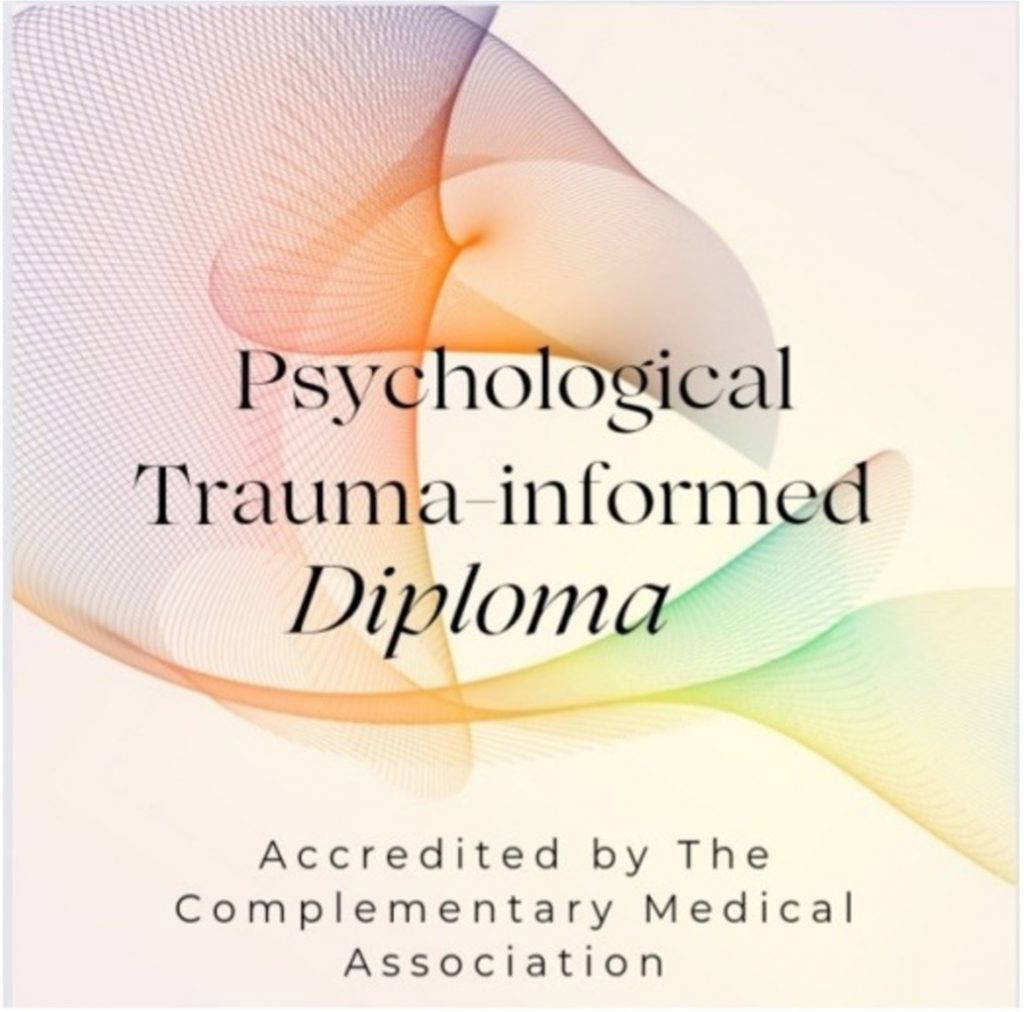Both our workshop and diploma can be delivered within your organisation, please email community@thewellnessgateway.org
Trauma-informed Workshops – Organisations (over 18s)
These are delivered on-line please see our events page for next dates.
What is covered:
- What is trauma?
- How trauma affects the brain
- Symptoms and behaviours
- Adverse Childhood Experiences
- Attachment
- The Nervous System
- Re-traumatisation
- Trauma and the memory
- Supporting people living with trauma
- Somatic approaches to trauma
Members of the public, professionals, service professionals, educational establishments and parents. For over 18s only.
Accredited Psychological Trauma-informed Diploma – For Professionals
This course is face to face or is delivered online – please enquire for online dates.
Online Course
- The Accredited psychological trauma informed diploma can be studied at home in your own time now with an additional case study (which can be a group) and a reflection which equates to 15.5 CPD points.
-
So how does it work? We recorded the full day in a training session delivered by our founder, for one of our staff and another who gave their permission for it to be used in training.
-
You can watch the six hours in your own time and we are happy to offer any email or Zoom support before hand, during and after. You will need us to send you a bunch of resources to use in your case study too which we talk about during the course.
-
We charge £399 pp and can send you an invoice, we can take card payments but for a 1% fee on top
- One case study (5 hours)
- Reflection 800 words
- 15.5 minimum hours in total equating to 15 CPD points
- Full certification
Course Cost
£399 per person
Includes marking, feedback and certification
Bank transfer and Card payments accepted

Pre-requisites to the course
This course is open to anyone who is supporting clients, with psychological trauma and works with adults and children. We welcome staff from the services, educational settings, counsellors, complementary and holistic therapists etc. We would ask for confirmation of qualifications ideally a level 2 counselling diploma or holistic qualification. This is entirely at our discretion so please contact us if your job role is not included above. Please note this course is not for members of the public.
Case Study (5 hours in total)
We would like candidates to complete one case study in their own therapy/work space within three months to show competency. We can provide a suitable case study client – please ask.
Reflection (800 words)
“This course looks absolutely superb and it is a very important course coming at precisely the right time”
Jayney Goddard,
President, The Complementary Medical Association
“Trauma is not what happens to you, it is what happens inside of you. It is the psychological wound you sustained, the meaning you made of it and it’s cognitions about the self and the world. Trauma hardens you psychologically which interferes with your ability to grow and develop. You react out of pain and fear without knowing it. Your whole life is regulated by fear and pain that you are trying to escape from in various ways. “
Dr. Gabor Mate
Module Titles and Content
- What is trauma? – Explanation of psychological trauma and its long term effects
- The language around mental health and trauma and NICE evidenced based treatment – Current NICE guidelines around treating psychological trauma
- The parity of esteem in treating trauma – UK mental health statistics and trauma being one step further away
- PTSD and complex PTSD – definitions
- Memory – Implicit, explicit and how memory processing is affected by psychological trauma, the AIP model (adaptive information processing model)
- The anatomy and physiology of trauma – covering the brain, neurobiology, HPA (hypothalamic-pituitary-adrenal) axis, Psychoneuroimmunology, the Nervous System, Vagus nerve, Polyvagal theory, neuroception, the endocrine system and the biology of loss and biochemistry of healing
- Adverse Childhood Experiences (ACES) – definitions and information around the long term impact of ACES on psychological trauma
- Attachment and boundaries – John Bowlby’s Attachment, the first volume of his classic trilogy exploring the influence of parent-child relationships on personal development. The reversal of roles with a parent skews the child’s relationship with the whole world and is a sign of not only pathology (sign or cause of disease) in the parent but also the cause of it in the child. It is a potent source of later psychological and physical illness because it predisposes us to stress. Historical trauma and blame.
- Holistic and somatic approaches for supporting people living with trauma – avoiding re-traumatising clients
- Psychological reversal – understanding ‘stuck’ clients and self-sabotage
- Vicarious trauma – protecting yourself as a therapist
- Integrative approaches for supporting people living with trauma – resources, stabilisation, self-regulation and co-regulation
- Case study information and reflection
